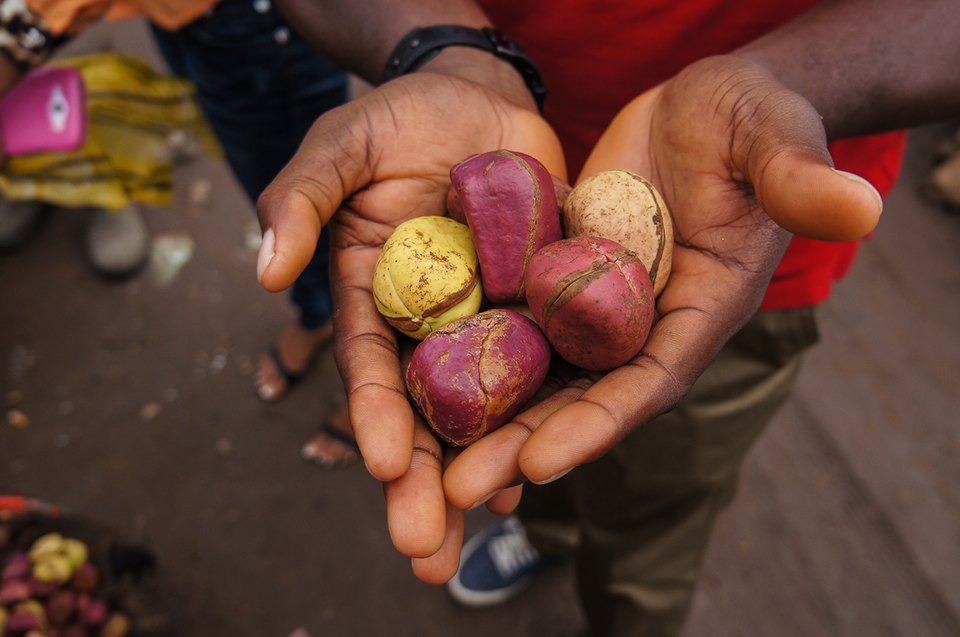Gambiaj.com – (BANJUL, The Gambia) – The Audacity of Forgiveness – Recently, while reading a deeply moving account of Rwanda’s post-genocide reconciliation efforts and listening to Wally Seck’s Borom Kerr, I was struck by a profound parallel. Rwanda’s story reminds us that even a nation shattered by unspeakable violence can choose the path of healing. In The Gambia, though our wounds are different, we too face a test: whether mercy and truth can triumph over bitterness and division.
The song’s meditation on responsibility echoed the choices of survivors who embraced forgiveness over vengeance. Together, they highlight the immense responsibility leaders bear—not only to guide their people, but to restrain passions that could ignite chaos.
“Revenge extends pain. Mercy offers peace.”
One Rwandan woman’s testimony—of forgiving the man who murdered her entire family—echoes moments from The Gambia’s Truth, Reconciliation and Reparations Commission (TRRC), where some survivors of torture and enforced disappearances responded not with rage, but with remarkable grace.
Such acts should never be demanded of victims, but when freely given, they reveal a moral courage that transcends vengeance. Mercy is not weakness—it is strength of the highest order.
The Gambia’s Quiet Strength
The Gambia did not experience genocide, but we endured two decades of authoritarian rule—years defined by fear, silence, and state terror. Neighbours disappeared, truth was twisted, and families suffered. When that era ended, we could have chosen retaliation. Instead, we chose dialogue.
Through the TRRC, we bore witness to pain and resilience. There were truths, apologies, and even forgiveness—not imposed by law, but born of conscience.
I recall a conversation with Dr. Mamadi Cham, then Director of Medical Services. We agreed that The Gambia needed a healing process beyond televised testimonies—one woven into our social and institutional fabric.
Sadly, that process was never fully realized. Many wounds remain unhealed, and impunity quietly persists.
One memory from that time remains vivid. I was among fifty people arrested and detained under opaque circumstances. Officers began calling names in small groups.
When three Permanent Secretaries were taken while I remained behind, it was Tombong Saidy who spoke up: “Why is Abdoulie being left behind?” That small act of solidarity may have saved me. I have never forgotten it.
Mercy in Our Traditions
Mercy is deeply rooted in both Islam and Christianity.
When the Prophet Muhammad (peace be upon him) returned to Mecca after years of exile, he held the power to avenge his persecution. Instead, he declared: “Go, for you are free.” He chose restraint and pardon, proving that true justice uplifts rather than crushes.
In Christianity, the hymn God of Mercy and Compassion speaks to the same principle: mercy as the highest expression of justice. It calls us to rise above hurt and return to our best selves.
Lessons from Rwanda: Compassionate Institutions
Rwanda shows us that healing is possible—even after unimaginable pain—if a society embraces dignity, truth, and humanity. It challenges us to design institutions that embody compassion, not just control.
In public service, I saw compassion treated as optional. Yet it is compassion that grants institutions legitimacy. People trust systems that recognize their humanity. Reform must be rooted in values that dignify the human spirit.
Dangerous Rhetoric, Fragile Peace
In recent weeks, our national discourse has darkened. From rallies to online forums, threats of confrontation increasingly replace dialogue.
Phrases like “We don’t mind spilling blood” or “It’s a do or die situation” are not mere words—they are harbingers of division.
We must remember: an eye for an eye makes the whole world blind. The Gambia cannot afford a descent into violence.
The Tribal Temptation Across Africa
Our challenge is part of a wider African struggle. Across West Africa, politics is increasingly tribalized.
In Nigeria, ethnic and religious divides are weaponized during campaigns.
In Côte d’Ivoire, the ideology of ivoirité* nearly tore the nation apart.
In Mali and the Sahel, ethnic mobilization worsens insecurity.
In Guinea-Bissau, factional loyalties undermine peace and governance.
In Sierra Leone and Liberia, civil wars showed how tribal rhetoric can destroy nations.
The lesson is clear: when leaders exploit ethnicity for short-term gain, they gamble with their nations’ survival.
The Gambia must resist this path. Our history is one of coexistence—families interwoven across ethnic lines, friendships bridging differences. If tribal rhetoric replaces dialogue, we risk unraveling the very fabric that has held us together.
Restoring the Voice of Elders
In traditional Gambian society, elders commanded respect. Their words could end feuds and calm crowds. Today, that role is fading. Who do we listen to now, when the nation trembles?
We must restore dignity to the role of elders—allowing them to speak not from partisan corners, but from the heart of the nation, reminding us of what binds us together.
A Call for Mercy, Restraint, and Civic Maturity
At this fragile moment, The Gambia needs leaders who speak with conscience, citizens who choose peace over provocation, and institutions anchored in dignity.
Our future will not be saved by anger, but by mercy that heals wounds, restraint that prevents destruction, and civic maturity that elevates our democracy. Justice must be pursued—but with dignity. Debate must be robust—but without violence. Leadership must be firm—but compassionate.
If The Gambia is to chart a different course from so many troubled corners of Africa, it will be because we showed moral courage. Mercy, restraint, and civic maturity are not weakness. They are the true test of strength.
Let us be the generation that chose peace—firmly, deliberately, and together—for The Gambia and for Africa.











One Response
Very true. Africa need not only do away with tribal marginalization, but to seriously work towards unity and self-determination.